Exclusive: Police are ‘ticking time bomb’ for another Stephen Port, the Four Lives killer’s neighbour claims
and live on Freeview channel 276
The police force which failed to stop Four Lives serial killer Stephen Port is a “ticking time bomb” for a similar tragedy due to homophobia, the murderer’s former neighbour has warned.
Ryan Edwards, who is played by History Boys actor Samuel Barnett in the new hit BBC drama, described the force as the “perfect breeding ground” for the sadistic killer’s campaign of violence against gay men and insisted nothing had changed since his trial.
Advertisement
Hide AdAdvertisement
Hide AdHe has now made a string of bombshell accusations against the local police and revealed an evidence dossier of the force’s “entrenched” homophobia, which he submitted to the inquest.
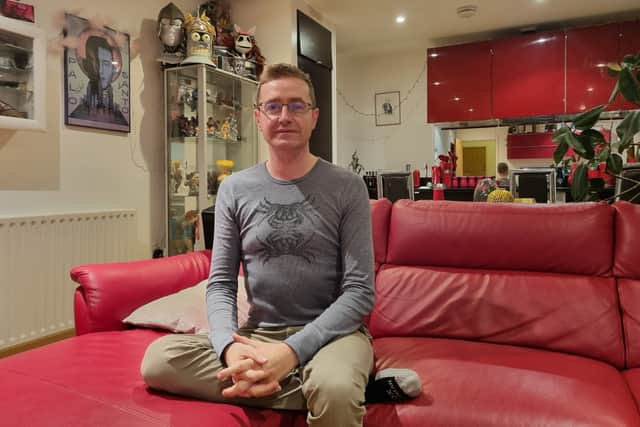

It comes after coroner Sarah Munro QC barred the jury from considering if the Met was “institutionally homophobic”, which MPs have now called for a public inquiry into.
Advertisement
Hide AdAdvertisement
Hide AdThe sicko then dumped their bodies on the street and in a nearby churchyard close to his home in Barking, east London.
Flawed police investigations into the deaths of Anthony Walgate, 23, Gabriel Kovari, 22, Daniel Whitworth, 21, and Jack Taylor, 25, between June 2014 to September 2015, meant Port was able to continue killing, before his arrest and sentencing to life in prison in 2016.
Advertisement
Hide AdAdvertisement
Hide AdBefore the tragic events, Ryan was commissioned by Barking and Dagenham Council to carry out an LGBT+ needs assessment for the borough and identified areas of improvement for the local force.
But found little progress was made, and has now spoken out to warn that “prejudice is endemic” in the force.
“I absolutely believe wholeheartedly that Barking and Dagenham Met’s attitude to LGBT+ people is rotten to the core,” he said.
“It was the perfect breeding ground for the events that transpired to happen. I have seen nothing since that has changed my attitude to that.”
Advertisement
Hide AdAdvertisement
Hide Ad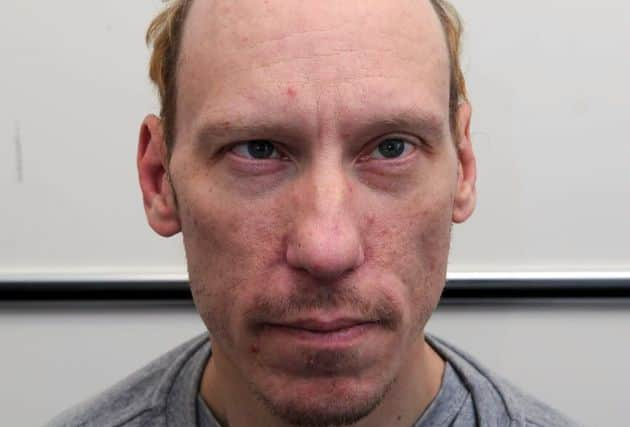

Ryan said an LGBT+ officer told him the homophobic language used by borough police everyday was “horrific” and the force was a “horrible, toxic environment for gay people, where you have to keep your head down”.
He said: “It’s not right that the jurors have been barred from asking what I think is a fundamental question.
“It’s like the Stephen Lawrence case without being allowed to consider whether it was racist.”
His claims include that the east London force:
- Failed to warn the LBGT+ community of the “dramatic” spike in deaths,
- Did not publicise that the body of Gabriel Kovari, Port’s then-lodger and second victim, had been found, meaning Ryan was unable to give them vital evidence of his guilt - and potentially save Daniel Whitworth and Jack Taylor’s lives,
- Offered “woefully lacking” and “lip service” LGBT+ provision in the borough,
- Formed a “brick wall of resistance” to efforts to improve relations between police and the LGBT+ community,
- Allocated no resources for LGBT+ liaison officers to carry out this work, other than in their own time,
- Displayed “apparent homophobia” from officers who attended Ryan’s home in 2016 after he reported a straight male couchsurfer who had extorted money from him,
- Deployed officers who “had no empathy” to deal with a report of transphobia,
- Underwent a restructuring into the East Area Borough Command Unit (EABCU), meaning it is unclear “what is being done specifically for Barking and Dagenham police” which he believes is “institutionally homophobic”.
A Met Police spokesperson said: “It is absolutely not right that friends and families had to produce their own information about the deaths.
Advertisement
Hide AdAdvertisement
Hide Ad“While we work closely with families and need their help and support this should not have happened and again, for that, we are sorry.
“We would have expected the officers to have listened to all concerns and investigated them properly.”
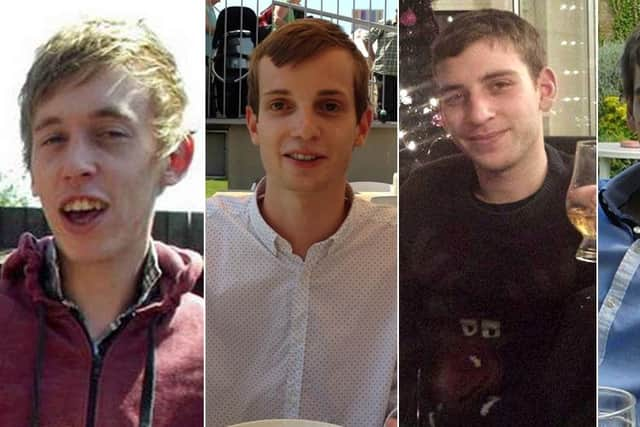

Ryan - as portrayed in Four Lives - lived across from Port’s Barking flat for three years, gave an emotional account of the attitudes he says were displayed by officers investigating the murders.
He said: “Their attitude was, that’s what gay people do. They take drugs, they have risky sex, and they die as a result - and quite frankly they deserve it.
Advertisement
Hide AdAdvertisement
Hide Ad“Which is really upsetting to say but I’m sure that’s what they were thinking.
“I think that is endemic and it riddled the whole investigation. Let’s face it, it was the families who brought him to justice, otherwise Stephen would have kept on killing.”
The Met spokesperson said: “The jury couldn’t consider prejudice on a point of law, but we recognise the concerns amongst LGBT+ communities and we don’t dismiss those feelings.
“In an organisation of over 44,000 people, there will be a small number with attitudes and beliefs that are not welcome in the Met.
Advertisement
Hide AdAdvertisement
Hide Ad“We will challenge, educate and discipline as appropriate. We’re working hard to develop our network of LGBT+ police advisers to support communities – we know there is more to do.”
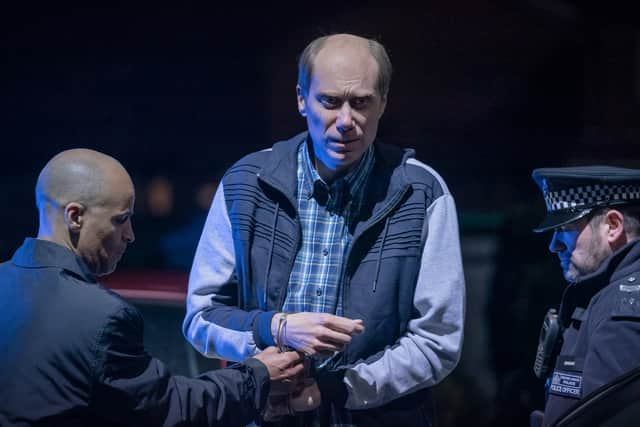

In 2016, Ryan reported an “unpleasant” incident with a couch surfer who extorted money from him to the police.
Two officers visited Ryan, and he said they left him “frustrated” with their lack of empathy.
“The thing which really upset me was the officer said ‘it was like two lovers having a tiff over who pays the bill’,” Ryan said.
Advertisement
Hide AdAdvertisement
Hide Ad“They thought it was a sexual thing - an escort thing. They fictionalised the situation in the same way as they fictionalised the murders. They have just not learned any lessons.”
The Met was not able to comment on this incident due to the time elapsed since the report.
While in September 2021, a neighbour of Ryan’s, a trans woman who wished to remain anonymous, told of a similar incident with police after she reported a transphobic slur.
She said she was visited by two male police officers who filled out a generic hate crime questionnaire and told her no offence had been committed.
Advertisement
Hide AdAdvertisement
Hide AdShe said: “It was done in such a cold way. I was expecting them to ask me to go through the story - there was none of that.
“If something like this happens again, after this experience, I’m just not going to report it,” she said.
“It leaves people like me in quite a vulnerable position - who do you go to for help?
“Especially with the focus on women’s issues after Sarah Everard’s murder, I do feel like I would have been treated differently if I wasn’t trans.”
Advertisement
Hide AdAdvertisement
Hide Ad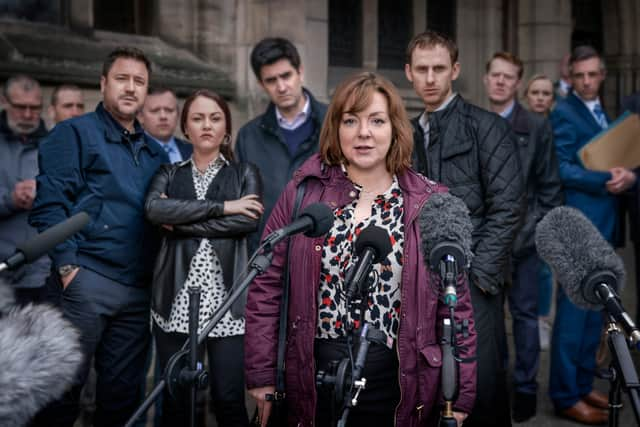

And Ryan added: “These decisions not to do anything are being taken before they even meet victims - how can that be right, in this day and age?”
The Met spokesperson said: “Police investigated an alleged hate crime which occurred in Barking at around 9am on Saturday, September 4, 2021.
“The victim reported transphobic comments had been made to her. Officers made an appointment and spoke to the victim in detail about the incident.
“Enquiries were carried out around any CCTV or witnesses. In the absence of either, the matter could not be pursued further.
Advertisement
Hide AdAdvertisement
Hide Ad“The victim was offered the opportunity to be put in touch with support agencies but declined.
“We would always encourage people to report incidents of this nature.”
Following Port’s conviction, watchdog the Independent Office for Police Conduct (IOPC) investigated the 17 officers involved in the original inquiries, and nine were found to be below standard.


Five of the 17 officers have since gone on to be promoted.
He said: “When the police come out and say, the force is not institutionally homophobic, that’s complete rubbish.
Advertisement
Hide AdAdvertisement
Hide Ad“They are actually promoting officers - rather than disciplining them.
“Something similar, another type of Stephen Port incident, will eventually occur in Barking.
“Without fundamental change in the borough, its a ticking time bomb.”
The force spokesperson said: “We voluntarily referred ourselves to the Independent Office for Police Conduct (IOPC) following the deaths having identified concerns.
Advertisement
Hide AdAdvertisement
Hide Ad“No individual officer had a case to answer for gross misconduct but the performance of nine officers fell below the standard required.
“If the IOPC wishes to revisit its investigation we will fully cooperate.”
Ryan also said the police failed to engage with the LGBT+ community in Barking, and that his efforts to improve things, prior to the murders, and after a Gallup poll identified “prevalent” underreporting of hate crime in the area, “hit a brick wall”.
Officers tasked with LGBT+ liaison duties were not publicly named, or given time to carry out this work, and the station did not display posters or literature advertising this to the community.
Advertisement
Hide AdAdvertisement
Hide AdThe police, Ryan said, also did not publicise that Gabriel’s body had been found via LGBT+ outreach groups or social media.
He said: “I had evidence on my phone about Gabriel [texts from Port]. If they had done the slightest bit of LGBT liaison work… I obviously would have gone straight to the police with the evidence.
“It wouldn’t have saved Gabriel but it certainly would have saved the other two.
“I was livid.”
Ryan’s evidence was supplied to the inquest via a witness statement, dated October 16, 2021.
Advertisement
Hide AdAdvertisement
Hide AdBut after the judge ruled out homophobia as an issue, the jury were unable to consider this in their conclusions.
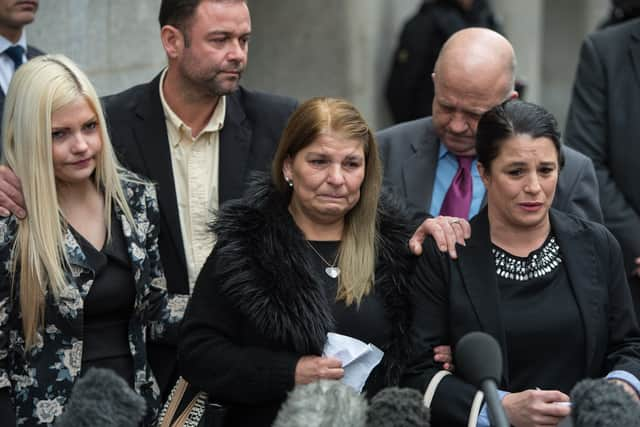

Seen by LondonWorld, the dossier states: “The shunning of meaningfully embedding LGBT+ liaison officers reveals the homophobic attitude I believe is endemic in Barking and Dagenham police.
“Sadly their views appear entrenched even today.”
Ryan has called for all borough officers to undergo equality and diversity training, with an emphasis on LGBT+ issues.
“Officers attending LGBT+ incidents need to show empathy, sit down with people, take notes, listen to what they’re saying, and not prejudge them,” he said.
Advertisement
Hide AdAdvertisement
Hide Ad“Despite my confidence in local policing taking a serious battering, if there is a genuine committment to improve from the top, I would be happy to support and work constructively to help make this happen.”
The force spokesperson said “some of the family liaison support provided by Barking and Dagenham police in this case was not acceptable” and policies on this are being reviewed.
The Met says it “very much values” the guidance of its independent advisory group (IAG) on LGBT+ issues, despite the group not being involved in the Port case prior to his arrest, which the force has said was “a mistake and would not happen now”.
And the force says the managers of officers involved in the original investigations who have been promoted since the murders have been “spoken to… to confirm all those subject to the IOPC investigation who are still in the Met are performing to the expected standards”.
Advertisement
Hide AdAdvertisement
Hide AdWhile the spokesperson said further changes made in the force included:
- Linking crime trends more quickly;
- Providing specialist officer support to borough police;
- Introducing a new unexplained deaths policy;
- Victims not being passed between units;
- Improving investigator training and filling all detective vacancies;
- Recruiting more than 1,360 new officers since 2018;
- Investing in digital forensics;
- Recruiting more LGBT+ advisors to add to the existing 125;
- Training officers in LGBT+ issues;
- Creating an LGBT+ improvement group and conducting a survey,
- Rapidly improving force knowledge of the date rape drug GHB;
- And commissioning a review led by Baroness Louise Casey into culture at the Met.
They said the force has also trained new recruits in “unbiased decision-making” and “as of January this year, all police recruits complete this new and comprehensive training” which has also been covered in senior investigating officer courses since November 2017.
They said all new officers are trained in the Equality Act and the “culture, history and traditions” of their communities.
If you’re interested in finding out more about the Stephen Port case, Ryan is holding a free screening of the BBC drama Four Lives, followed by a Q&A, on January 14 at Zodiac Bar in Euston. For full details click here.
Have you got a story we should know about? Contact senior reporter [email protected] in confidence.
